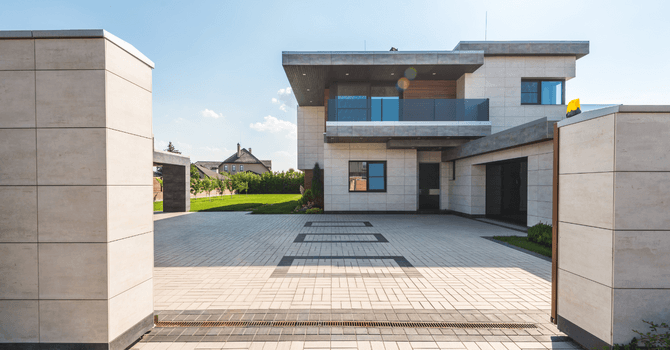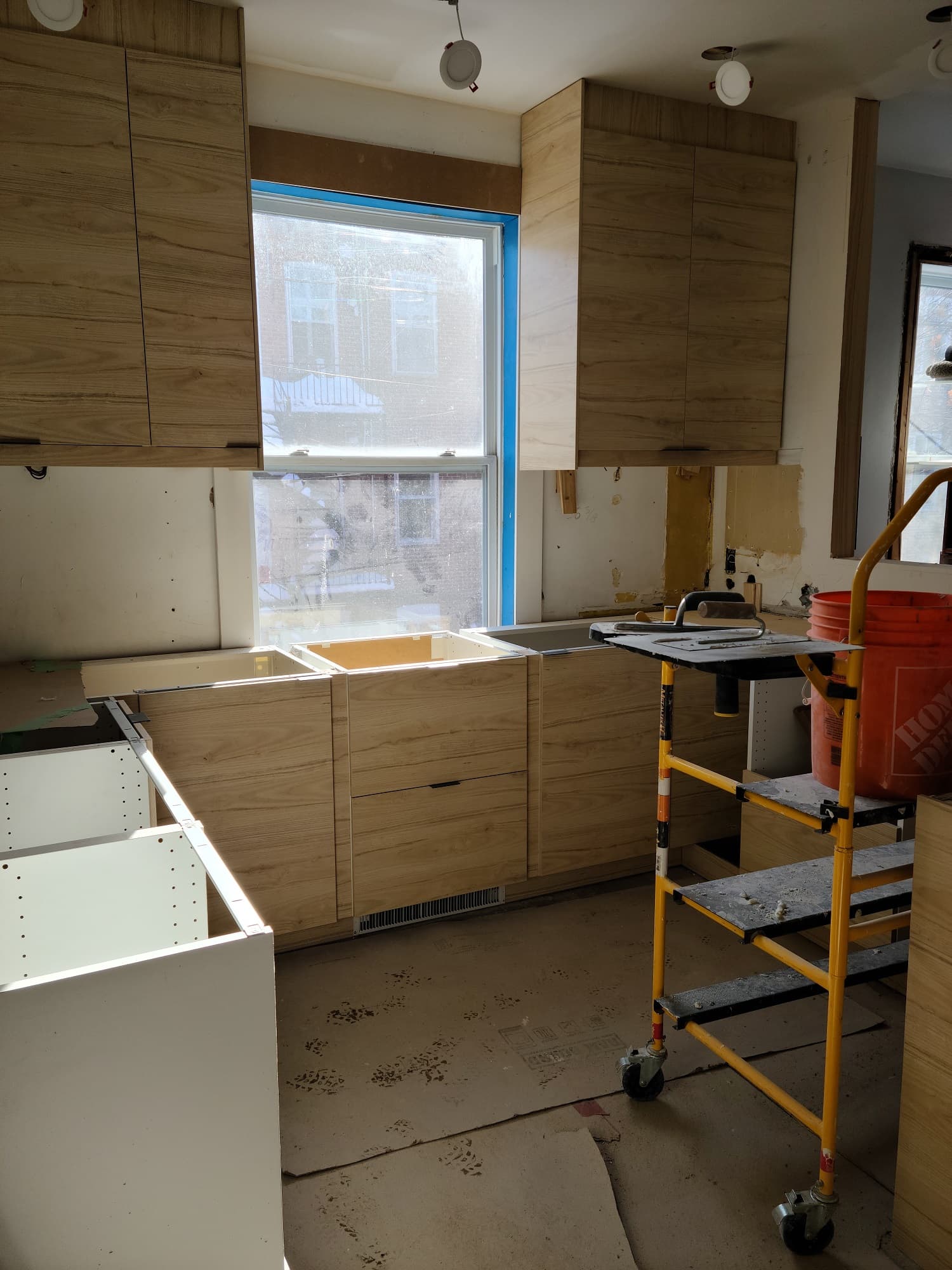Bigenerational Home: 7 Must-Know Facts Prior to Undertaking Such a Project
By Editorial Team
Updated on September 16, 2024

Are you hoping to build a bigenerational home to take care of your elderly parents? Albeit it’s only logical to believe that one will be able to benefit from this cohabitating situation, it’s, nonetheless, a rather large-scale project.
Since a lot of different factors must be considered to ensure the project is smooth sailing, from start to finish, here are 7 things to keep in mind prior to diving, head first, into this new adventure.
What’s a bigenerational home?

Source: Canva
A bigenerational house is a residence designed to host two different generations: adult children (and their kids eventually) and aging parents. The idea behind it is to favour intergenerational proximity and facilitate the care of older family members or children.
Bigenerational houses often consist of two separate units, to allow every generation their own, independent living space. Common areas can also be shared, such as the living room, laundry room, or backyard.
Such homes can consist of various designs:
Two independent units, duplex-like;
An extension built onto an existing dwelling;
Separate units on the same property.
The advantages of a multigenerational home include, amongst many, the possibility of staying connected to your family, lowering monthly rent/mortgage costs since all expenses are shared, and enabling one to take care of their aging parents.
7 Tips to Successfully Complete Your Bigenerational Home Project

Source: Canva
1- It’s best to hire an architect to design the plan for your bigenerational home
To manage your project, you can always hire an architect. In fact, they’ll have the necessary knowledge and skillset to guide you along during your project. Architects were trained to design communicative spaces within a single structure, as well as plan the layout, design, and construction process of the latter. Moreover, they’re qualified individuals capable of designing a building that corresponds to their client's needs, while also being familiar with the regulations of the National Building Code of Canada and municipal by-laws.
This type of project consists of building an addition or adding an extension, therefore, note that certain municipalities will likely require an architect’s seal to validate the blueprints. Depending on the terms of your contract, they could also follow up on the construction process and manage the finances and the progress of your project, at every step. Even though you’re not required to deal with an architect, it can turn out to be a tremendous asset to your project.
2- Take your needs and that of your loved ones into consideration
When referring to the importance of properly assessing one's needs, it obviously means taking your needs into consideration, but also that of your relatives. You should start by asking yourself about everything privacy-related, and what that means for all concerned individuals. Are you comfortable with your close relatives entering your home without knocking? Should all noise cease by a certain hour?
Also, another good conversation to have is about the fair share that each party will be responsible for in terms of maintenance. You have to take into account that a relative with impaired mobility won’t be able to participate as much when it comes to home maintenance chores, whether that be indoors or outdoors.
Just like any loving couple moving in together, keep in mind that unfair distribution of tasks can result in conflicts! On that point, we highly advise putting tasks and expectations from all parties on paper when it comes to this new cohabitation situation to avoid any problems down the line.
You could also inquire with other people who have lived through such an experience to know all about the good and the bad. This will help you anticipate any problems that could surface or better yet, determine what works when it comes to yourself and your family. You can also use the opinions of others to shed light on the process.
The faster you bring it up to your relatives, the faster any doubts or questions can be resolved. Being proactive also consists of including your loved ones in the process since the situation will also impact the various relationships built amongst your family members.
3- Inquire as to the current municipal by-laws

Source: Canva
Before undertaking your intergenerational home project, note that you’ll need to stop by your municipal head office to obtain the necessary permits to convert your dwelling. In fact, such an establishment has been responsible for handing out the required authorizations for projects alike since 1998.
Along the same lines, note that roughly 65% of municipalities in Quebec have zoning laws allowing the construction of intergenerational houses, however, renting out a possible unit to a stranger is prohibited. Also, note that intergenerational houses aren’t permitted in certain municipalities, such as in Repentigny.
On another note, you should be mindful of the criteria to respect to ensure your home is recognized as an intergenerational dwelling, as it may vary from one area to the next. As a matter of fact, in some municipalities, the square footage of the second section of the house may be limited, while in others, one can request that both sections of the house have their own addresses, or that both have the same exterior cladding.
On that note, let us reiterate how important it is to follow the current regulations, otherwise, you risk being ineligible for certain advantageous tax credits, such as those granted to children lodging their parents. You’ll only be able to receive the latter if your father or mother lives in a separate unit labelled as a “self-contained domestic establishment.”
4- Establish a realistic budget
Generally speaking, we estimate that adding square footage to a home to transform it into an intergenerational home costs between $30,000 and $120,000. Now that’s definitely not a bargain! In fact, you should factor into your budget the items that'll need to be put in place to allow your aging parents to remain independent. Will they need grab bars, a particular type of bathtub installed, or a walk-in shower? Some of these small projects can quickly add up.
Furthermore, the physical state of your relatives can deteriorate over the years, as such, it goes without saying that they might require certain changes to be made post-construction. These unexpected expenses can certainly be an annoying factor if not anticipated at the time you're planning your budget.
Since we’ve just mentioned the costs associated with adapting an already-built home, let’s delve into the costs related to building or purchasing an intergenerational home. To give you a concise answer to the latter, the cost of either of these alternatives will be between $216,000 and $240,000.
Need more information about adapting a home for a loved one with impaired mobility? Check out our article on the subject matter!
5- Assess the cost-effectiveness of your future intergenerational home

Source: Canva
By investing a large sum of money into a project, it’s only logical to question how cost-effective it actually is. As such, a caveat applies. The latter consists of keeping in mind that an intergenerational home will take more time to sell once put on the market. This is due to the fact that this particular type of property sells for 15% more money than standard single-family homes, and is intended for a niche clientele, which limits the potential buyer pool.
6- Plan your day-to-day life during the construction
If you’re looking to add an extension or renovate your house, plan your daily life accordingly so that your kids and parents are comfortable during this hectic period. Undergoing renovations can cause a certain amount of stress and anxiety in a family. As such, stay attentive to the needs of your loved ones and grab at every chance you get to spend quality time with them.
7- Inquire as to the assistance you’re entitled to
At the moment, the government doesn’t have a program in place that’s specifically dedicated to intergenerational home-building projects. However, there are programs intended for family caregivers and the elderly.
For more information on the available financial assistance, check out our article about the advantages of intergenerational homes.
Looking for something else?
Related articles
The latest industry news, interviews, technologies, and resources.

Editorial Team
•28 May 2024
Modern pavers are, without a doubt, a hit with regard to their elegant shape, most often polished finish, and beautiful shades that are both rich and refined.

Amanda Harvey
•08 Nov 2023
As we all know too well, renovating your house or home can be extremely costly. Not everyone is able to spend the necessary funds on projects they may want or need to carry out.

Editorial Team
•17 Feb 2025
Kitchen cabinets can be the centrepiece of the space, and beautiful, well-designed ones will make a huge difference in both the layout and feel of the room. Custom kitchen cabinets are an excellent way to add a unique element to your home as well as increasing the resale value.

Editorial Team
•08 Nov 2023
The idea of renovating your house can sometimes spring up at an unexpected moment. Next thing you know, you find yourself browsing the internet looking for inspiration on Pinterest. However, if you're renting your apartment, it could be difficult to start any renovation projects. The final decision will be up to your landlord if you need to make any major changes to your space.

Amanda Harvey
•08 Nov 2023
A new home is one of life’s most exciting ventures, and a common question that accompanies this purchase is should I buy it or build it? When looking for the perfect house, it may be difficult to find one that checks all the boxes.